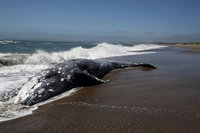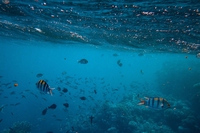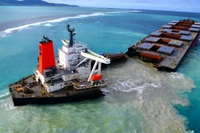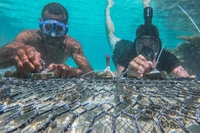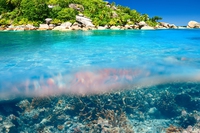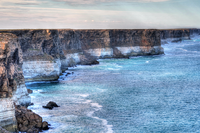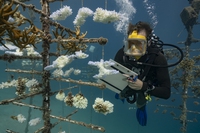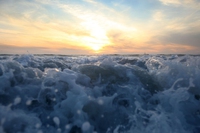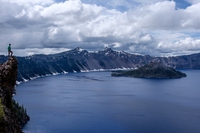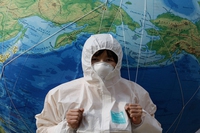
When radioactive water from Fukushima reaches the ocean
A group of experts in Tokyo suggested pouring radioactive water from Fukushima into the open sea. A marine biochemist explains the consequences of this absurd decision.
A group of experts in Tokyo suggested pouring radioactive water from Fukushima into the open sea. A marine biochemist explains the consequences of this absurd decision.
The decline in grey and humpback whales in the Pacific and Atlantic Oceans has been traced to food shortages caused by rising ocean temperatures.
The United Nations has launched a major international alliance for ocean science, undertaking a mission close to all our hearts.
The cargo ship that ran aground off the coast of Mauritius on 25 July, causing incalculable damage, has split in two and its captain has been arrested.
The largest coral reef in the world is severely threatened by climate change, but researchers are developing strategies that could contribute to saving the Great Barrier Reef.
Seychelles have extended its marine protected area, which now covers over 400,000 square kilometres, an area larger than Germany.
Norwegian oil giant Equinor had pulled out of drilling for oil in the Great Australian Bight, one of the country’s most uncontaminated areas. A victory for activists and surfers who are now campaigning for the area to be protected forever.
30 per cent of the planet needs to be protected to stop precipitous species decline. The UN has set out its aims for the the COP15 on biodiversity scheduled for Kunming, China in October.
Ocean warming has risen to record highs over the last five years: just in 2019 the heat released into the world’s oceans was equivalent to that of 5-6 atomic bombs per second. The culprit, no doubt, is climate change.
Refusing the anthropocentric vision and respecting the laws of ecology is the only way to safeguard the future of our and all other species, Sea Shepherd President Paul Watson argues in this op-ed.
